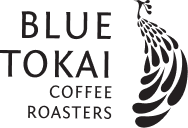How important is the water when you brew a cup of coffee?
The water you use is integral to the way your coffee tastes. It changes every characteristic of your coffee - possessing the ability to make it less or more acidic, increase or decrease body and even change the way it tastes as it cools down.
Maxwell Colona-Dashwood, co-author of Water and Coffee wasn’t exaggerating when he wrote “water is the subjective element that plagues the country.” Although he was talking about varying mineral composition of tap water across the UK in this quote, the truth of the matter is that all the tap water in India is probably (read definitely) hazardous to our health. Nevertheless, the point remains the same - the various sources of drinkable water here (RO, bottled, borewell, etc) will also vary in how well they brew the perfect cup of caffeinated joy.
Coffee to Water Ratio
Before looking at the water itself, the ratio of water to coffee has to be specific to the equipment you're using. Infusing the right amount of water in the exact amount of coffee will help you create a cup of coffee that suits your preference. Our suggested ratio is 16 grams of water to 1 gram of coffee (16:1). Dedicated brewing scales from Hario or Acaia are nice to have, but regular kitchen scales will also work just fine.
The Temperature of the Water
Ensure that your water is at the right temperature before pouring it in! If you’re using an electric kettle to heat your water, wait 30 seconds after the water has boiled so that it cools down. Boiling water will indeed burn your coffee since the higher the temperature of your water, the faster the coffee is extracted resulting in an overly bitter cup.
If you are brewing hot coffee, we recommend the maximum water temperature you brew at is 94C. If you find that you are getting an overly bitter flavor, start reducing the temperature of the water. Some recipes can call for water as low as 80C, but keep in mind that the lower your water temperature, the slower the coffee flavors will be extracted. Hence, the longer you will need to brew your coffee to achieve the desired flavor.
Chemistry of the Water
Last but not least - know your water! Where does your water come from? Is it hard water or soft water?
Don’t underestimate the power of water. As an ingredient, a cup of coffee is 98% water and we’re assuming that you wouldn’t want to drink something that is 98% tap water. However, water plays a more important role as a solvent.
While you may assume that the water you’re using is "pure," it could actually have a wide variety of TDS or Total Dissolved Solids and includes components such as Calcium, Magnesium Carbonate, Fluoride, Iron and Sulfates. These minerals interact with compounds in coffee to extract flavor. The goal is to strike a balance in the amount of dissolved solids in your water - having too many dissolved minerals will cause the wrong kinds of flavors to be extracted from the coffee, creating off tastes. At the same time, distilled water, which has no dissolved minerals will have nothing to react with the coffee so you’ll end up with flat, dull coffee.
To those who wish to delve into the specifics of the water they’re using – a refractometer is helpful in unveiling the TDS in your water. Given that very few of us will ever really test their water for hardness, softness or TDS, we recommend this easy rule - say no to tap water, and yes to RO water.
Also, watch this space for a detailed experiment on how different types of water change the taste of your coffee! We’ll be experimenting with tap water, bottled water, RO water, distilled water and “special brewing water”.
Conclusion
We hope this blog post helped you brew a better cup of coffee! Don’t forget, bad water = bad coffee and attention to detail during the brewing of coffee is as important as it is while roasting the coffee. For more brewing tips, view our brewing guides. For a detailed video on coffee and water, watch this and to read about coffee refraction.







